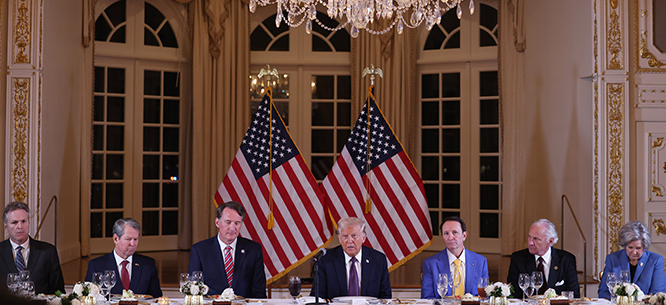Academics at Northumbria University and campaigners from the UBI Lab Network have launched a groundbreaking proposal for a UK first-of-its-kind Universal Basic Income pilot. Crucially, it’s one that could start the ball rolling towards ending absolute poverty in Greater Manchester for good. The pilot would help to build the case for the eventual roll-out of a country-wide Universal Basic Income (UBI) scheme.
However, its potential seismic impacts aren’t only limited to these longer-term goals. This is because the Basic Income scheme itself could be about to make a difference for young homeless people across Greater Manchester – and it could do so right away.
The Canary spoke to Sam Gregory – one of the UBI activists behind the proposal – on the exciting possibilities for the pilot scheme.
Universal Basic Income: the grassroots group on the case
Sam Gregory works for Opus Independents – a nonprofit social enterprise that stewards the UBI Lab Network. He’s one of the co-founders of the grassroots group of citizens, researchers, and activists exploring the potential of a Universal Basic Income. Through the network, Gregory has been involved in UBI activism for several years, and has been actively pushing for pilot projects all over the world.
As a flavour of the sort of work he has done, Sam pointed to a number of councils the network has successfully persuaded to pass motions calling for Basic Income pilots. The first to do so was Liverpool in 2018, followed the subsequent year by Sheffield, and the year after, Hull became the third council to do the same. Motions in support of UBI only snowballed from there. The group has achieved this across 33 councils country-wide.
So far however, the only place in the UK to actually pilot a major Basic Income scheme at scale has been Wales. However, that could be about to change. Specifically, this was the Welsh government’s two-year pilot for young care leavers. This involved 500 participants aged between 18 and 20. From 2022, to 2024, the Welsh government gave them £1,600 a month.
The final results for this aren’t in yet. However, preliminary ones already suggest that the programme has had a positive impact. Notably, it appears that the intervention provided financial stability for the young care leavers involved in the scheme.
Now, UBI Lab Manchester has instigated the proposal to pilot another prospectively immensely impactful project.
A UBI pilot for Greater Manchester
In a nutshell, it involves the following core elements. Up to 200 young homeless people, or those at risk of homelessness will receive £1,600 a month, for two years. Crucially, it’s regular, reliable money that goes straight into the pockets of participants – rather than to the household. They can spend this on whatever they want, wherever they want. And importantly, there are no strings attached. In other words, the scheme would apply no conditionality requirements – like work – to get the payment.
Most significantly of all, the central tenet underpinning it is this: it’s universal. Of course, given it’s a pilot scheme, this isn’t strictly the case. By its very definition, a UBI is for everyone – and this Basic Income pilot is for up to 200 participants only – for now at least. However, in the spirit of UBI, it’s there to help those who need it most.
In fact, that’s the detail about this UBI pilot that stands out most to Gregory. It’s not just a project that might make a difference for some of the poorest and most marginalised individuals in a far-off prospective future scenario where the UK has fully adopted UBI. The pilot could tackle absolute poverty and homelessness in the here and now:
if you set it above the absolute poverty line, you would just, at the stroke of a pen, end absolute poverty, which would be incredible. And then of course, you would also start to address relative poverty as well, as in, through it having a redistributive effect and through lessening inequality in the country, you would then start to see relative poverty coming down as well.
And crucially, it would mean up to 200 homeless people in Greater Manchester could immediately benefit from the scheme:
if you’re doing a pilot, it makes sense to think about who’s going to be involved in the pilot and what good you can do in the short term, regardless of what it demonstrates in terms of the wider effects of UBI. So I think the thing that’s really great about this pilot is that before you even get to talking about the potential transformative benefits that it might show if basic income was rolled out across the whole country, this pilot would really, in the short term, help some of the most vulnerable people. So people who are either homeless currently or at risk of homelessness in Greater Manchester.
A tale of two city regions thanks to neoliberal capitalism
After all, it’s shameful that in 2025, there’s anyone in the UK living without an income that provides enough for the basic necessities of life.
Obviously, having enough resources to meet this basic threshold is scraping the bottom of the barrel in terms of ambition as it is. In one of the richest countries on the planet, it’s a damning indictment that the bar is only this – and worse still that more than 12 million people live below it.
According to independent local news site Mancunian Matters, the absolute poverty rate for children across Greater Manchester is higher than the UK average. Specifically, it sits at 18%, compared to the UK’s 15%.
As a measure however, absolute poverty isn’t particularly representative of the reality on the ground. The government defines a household as living in absolute poverty if its income is less than 60% of median household income from 2010/11. It uprates it by inflation, but it doesn’t take into account how household needs will have changed since 2010.
By contrast, relative poverty is a more helpful metric. It’s defined by an income less than 60% of the median household income in a given financial year. For many parts of Greater Manchester, the relative poverty rates are also significantly above the national average. As Greater Manchester-based nonprofit Resolve Poverty have underscored for instance:
Alarmingly, four of the city region’s local authorities also now feature in the list of the twenty council areas with the highest child poverty rates in the whole of the UK – with Manchester having the third highest child poverty rate in the country.
Such glaring regional inequality – for the North especially – is another reason Gregory expressed the pilot and a UBI more generally, is sorely needed:
I think these are particularly relevant for the North and Northern cities like Manchester and where I’m based in Sheffield. These are towns and cities where the economic status quo and neoliberalism, and an economy that’s mostly based around extraction and the City of London and global finance, just isn’t working for these places. Like, the current set-up is not benefiting places like Manchester and Sheffield.
Manchester is a city where you see these massive, speculative, build-to-rent skyscrapers shooting up all over the city that’s starting to make it look a bit like Dubai. Yet at the same time, you have these appalling rates of poverty and child poverty.
So you have this kind of gulf… somewhere like Manchester, you have these huge amounts of wealth and affluence for a very few that’s being channeled through these developers and build-to-rent skyscrapers, and then huge amounts of poverty and deprivation across the rest of the city. And a basic income, the first thing it would do is it would redistribute wealth from the super rich to the rest of us.
Giving people the time and headspace with a UBI pilot
Crucially, Gregory highlighted that UBI pilot – and UBI more broadly – would give people spending power which would:
revitalise a lot of our flagging local economies in the north.
And perhaps most importantly, he explained how it would:
give people the time and the headspace and the capacity to engage with civic and cultural life.
Specifically, he pointed out how:
at the moment, people are worried about paying the bills, they’re worried about their financial security and, you know, often working more than one job or working extremely long hours and people are exhausted and they don’t have the time and capacity to do anything else on top of that. Whereas if they had a basic income, I think we would see a huge wave of people engaging in civic and cultural life, getting involved in local politics, getting involved in volunteering and local activism and becoming active citizens. And I think that’d be a really exciting thing to see and would be another thing that would be transformative for northern towns and cities.
A ‘safety floor’ is better than a ‘safety net’
By the same token, it’s disgraceful that Westminster has failed to end the homelessness crisis, period.
As the Canary’s HG previously highlighted:
From 2023-24, there were 324,990 households assessed as homeless. That figure is households rather than single people. This figure was more than a 10% increase on the previous year.
Of course, the reality is that successive Tory governments are responsible for the soaring rates. It’s a legacy of the Conservative’s austerity-fueled agenda, underinvestment in social housing, public support services, healthcare, and repressive welfare policies. However, under the new Labour government so far, things aren’t exactly looking much better – because already, it’s offering only more of the same.
The pilot is not going to fix fourteen years of Tory ruin by itself. Nor can it fill in for the gaps in the new Labour Party government’s poverty and homelessness strategies in isolation. Nevertheless, a Basic Income would be an important step towards redressing both. It would give people on the breadline an “income floor” – essentially a stable financial foundation – from which to build their lives.
This was something that Gregory emphasised in particular about a Basic Income. A key case for UBI is that it’s vastly fairer, and more effective than the welfare system that currently exists. As Gregory explained:
So we kind of describe the current benefit system as well as, I guess, any other kind of targeted support, like the current way we deal with homelessness, as being like a safety net. And of course, a safety net has holes in it that you can slip through. Whereas a basic income is more like a safety floor, you can’t fall below it, it’s absolutely guaranteed, it’s rock solid. You receive the monthly payments, no questions asked, and regardless of income, wealth or work. So it provides that much greater sense of financial security than traditional benefits do, or traditional ways of targeting problems like homelessness.
To sum up, because everyone would get it, it means no one falls through the holes in the proverbial social security ‘safety net’.
A parachute to deploy before people hit the poverty line
Ultimately, this is also the crux: a UBI avoids many of the pitfalls the Department for Work and Pensions (DWP) has baked into income support benefits.
Out with the fear of cuts, sanctions, caps, and tapers. In with a regular payment.
In the proposal report, the authors have put together a comparison table with a number of these. This points out that where Universal Credit is conditional, household-based, and fails to reduce poverty, UBI does the opposite. It’s unconditional, paid straight to individuals, and even the least generous Basic Income schemes alleviate poverty.
Another thing that’s central to it, is that it’s all about making the rich pay their fair share. Crucially, the financing for it would come through progressive instead of general taxation – that currently underpin social security benefits:
If it was rolled out across the country, we envisage it being paid for through progressive taxation, so much higher taxes on the rich, much higher taxes on corporations, and much higher taxes on economic activity that harms people and the planet.
So of course, the rich would receive the basic income as well. But it would then effectively be taken back off them through tax, plus a lot more tax to pay for the basic income for everyone else. But it’s that principle of universality that’s important, just like we allow everyone to use the NHS, it’s pretty much the same as that.
There are other pros too which set the pilot, and UBI more broadly apart from how the DWP currently does welfare. One of the key points it underscores is that the Basic Income acts like a:
parachute already deployed to stop you hitting the floor.
Essentially, the payment is there before people fall into poverty or financial difficulty, not after, like with Universal Credit.
Subverting the scapegoating status quo
However, that wasn’t all. Gregory sees this as an opportunity to arrest back control of the narrative on social security too. The Canary discussed with Gregory the current rancid vilifying climate for benefit claimants. He mused that:
Due to having a hostile right-wing media and in living through a neoliberal era, there’s a sort of stigma attached to receiving benefits.
But Gregory felt that UBI could go some way to counteracting the corporate media’s hate-filled tirades. In his view, “that universality is the key”. He emphasised this with the NHS as an example:
So no one’s stigmatised as being a scrounger just because they use the NHS, because everybody uses the NHS and it’s open to everyone.
In other words, the right-wing scapegoat merchants could find it much harder to punch down on poor, chronically ill, disabled, and other minoritised groups. There’s an element of this that seems distinctly plausible.
However, it’s also a feature of right-wing neoliberal capitalism that it feeds on sewing said division. A UBI might be for everyone, but not everyone will be content that that’s the case. The pilot proposal report itself pitches in terms of circumventing public opposition to giving social security to “undeserving out-groups”. It implies that these are people out of work, and particularly those it describes as engaging in “socially destructive behaviour”.
On its own though, a UBI won’t take oxygen out of this right-wing notion. If there’s one thing the right-wing lives and breathes, it’s hate towards demographics it’s hell-bent to affix blame for the injustices of the capitalist system.
This highlighted something vital for the Canary too. Just as important, is ensuring that in advocating for one – the left don’t fall into the trap of lending legitimacy to these right-wing myths and frames either. Ultimately, UBI is about the idea that there shouldn’t be conditions to people having the things they need to live and thrive. So, UBI proponents must outright reject the argument in the right-wing’s own terms.
As such, Gregory saw the power of UBI in confronting these stigmatising narratives as two-fold as well. Universality was one part of the puzzle. The second, was how it removes the threat of a taper. Under Universal Credit, the repressive taper rate penalises people earning a living. For every pound earned above the work allowance threshold, the DWP deducts 55p. The punitive policy limits people’s options and opportunities for improving their financial security.
Gregory therefore indicated that UBI would turn the right-wing’s manufactured outrage over its reductive and patently problematic “work-shy” trope on its head:
A lot of those kind of really horrible, pernicious narratives are around this perception that people claiming benefits are sort of lazy and work-shy, whereas actually a lot of the reason, a lot of the time, the reason why they’re not in work is because of the poverty trap means that if you’re on something like unemployment benefit, and you start doing part-time hours, then your benefit tapers off…So people are kind of labelled as work-shy when the system is actually incentivising them not to work… Whereas under a basic income, if you kind of replace large things like unemployment benefit with a basic income, then people wouldn’t be punished
‘It needs to be both’: where UBI and UBS come together
Something else that’s immediately striking in the report is how the pilot would represent a merging together of two parallel tenets of socialist welfare. UBI is one – at this point obviously minus the universality component. The other is in principle, one iteration of Universal Basic Services (UBS). The NHS is an existing example of the latter, as the universal right to healthcare, free at the point of access.
The basis of both revolves around this universality. In short: they’re built around the idea that everyone should have access to all the basic necessities to live. This includes things like utilities, transport, the internet, and of course, housing too.
Enter UBS’s answer to people’s right to a home. Specifically, the report proposes that people enrolled in Greater Manchester’s Housing First scheme could be the target for the Basic Income pilot. Itself initially a three-year pilot, the combined authority first gave the programme shape between April 2019 and March 2022. Within that time, it rehoused 340 people across 10 Greater Manchester boroughs. And it has since extended it.
Notably, the scheme is just as it says on the tin. It gives homeless people and those who’ve experienced it, a home from day one – no questions asked, no conditions. As the report notes, its centred around the following values that align with the Basic Income pilot’s goals:
- People have a right to a home;
- Flexible support is provided for as long as it is needed;
- Housing and support are separated;
- Individuals have choice and control;
- An active engagement approach is used;
- The service is based on people’s strengths, goals and aspirations;
- A harm reduction approach is used.
Gregory pointed out that the pair both operate under one key premise in particular:
I think the common link is unconditionality. It’s about rather than having a targeted approach – and by definition anything that’s targeted can miss the target – it’s about that unconditionality of saying, actually the more effective thing to do is just to provide people a home, no questions asked and work from that as the starting point. And I think that’s what it has in common with basic income: that you start from that starting point of giving people the money and then if they’re so rich that they don’t need it, you can tax it back later. But you start from that point of giving people the money so that you never miss – so that everyone has it.
Importantly, Gregory confided his view that two schemes could really shine in tandem with each other:
I think that a kind of housing first approach – a basic housing right, and a basic income would mutually reinforce each other. It would be easier for people to rebuild their lives using a basic income if they had a guaranteed right to a home, and if they have a guaranteed right to a home it’s then easier to move on to the next step and build your family life if you’ve got a guaranteed income. So I think both those things, they’re very fundamental things and both income security and housing are also very fundamental determinants of health.
There’s obviously huge potential for the Basic Income pilot to demonstrate how UBI and UBS can work symbiotically to tackle systemic inequalities. Gregory noted that there’s been some debate in recent years on the left over which model is better. Part of this revolves around the concern that right-wing capitalists could actually hijack a UBI. The worry is that it could lead to them calling for a reduction in public services and greater privatisation.
However, he told the Canary that this is a false paradox:
It’s not an either or either thing, it needs to be both
Rather then, this pilot linked to Greater Manchester’s Housing First scheme would in fact demonstrate how UBS could:
really complement a Basic Income.
A UBI pilot doesn’t solve every problem, but…
The team at Northumbria University and the UBI Lab Network are hopeful the Combined Authority will adopt the proposal, and launch the pilot.
And the scheme could be right up Mayor Andy Burnham’s street – both figuratively and literally, (more or less).
He has previously indicated his support for piloting a Basic Income. Notably, his 2024 re-election manifesto pledged to bring forward a Basic Income pilot. Now, the report authors have sent their proposal to Burnham directly. They’re calling on him to follow through with his promise, and take it onto the Treasury.
The proposal would pitch to Whitehall how a combination of central government funding, public and philanthropic organisations donations, and GMCA reallocated service funding could cover its costs.
This Basic Income pilot for Greater Manchester isn’t going to end homelessness, absolute poverty, or the multitude of other systemic inequalities overnight.
However, it very well could be a significant step forward in all the above. What’s more, it has the potential to put money into the pockets of homeless people living there right now. In this way, it could help hundreds of Greater Manchester’s most marginalised and vulnerable citizens almost instantaneously.
Gregory shared a poignant quote that features in the report. It’s from California-based Universal Income Project co-director Sandhya Anantharaman, and reads:
Basic Income doesn’t solve every problem. But it makes every problem easier to solve.
And if the combined authority does take up the mantle with this new Basic Income pilot, it could indeed make rebuilding their lives that little bit easier for hundreds of homeless people across Greater Manchester.
Featured image supplied
By Hannah Sharland
This post was originally published on Canary.
 The UK government is slashing welfare payments by £5 billion while inequality is rising – & the wealth of the super-rich is skyrocketing.
The UK government is slashing welfare payments by £5 billion while inequality is rising – & the wealth of the super-rich is skyrocketing.  No more cuts to public services
No more cuts to public services 


 (@juliasuzanne76)
(@juliasuzanne76)  (@AngelaPerrett)
(@AngelaPerrett)  (@Normanjam67)
(@Normanjam67) 






